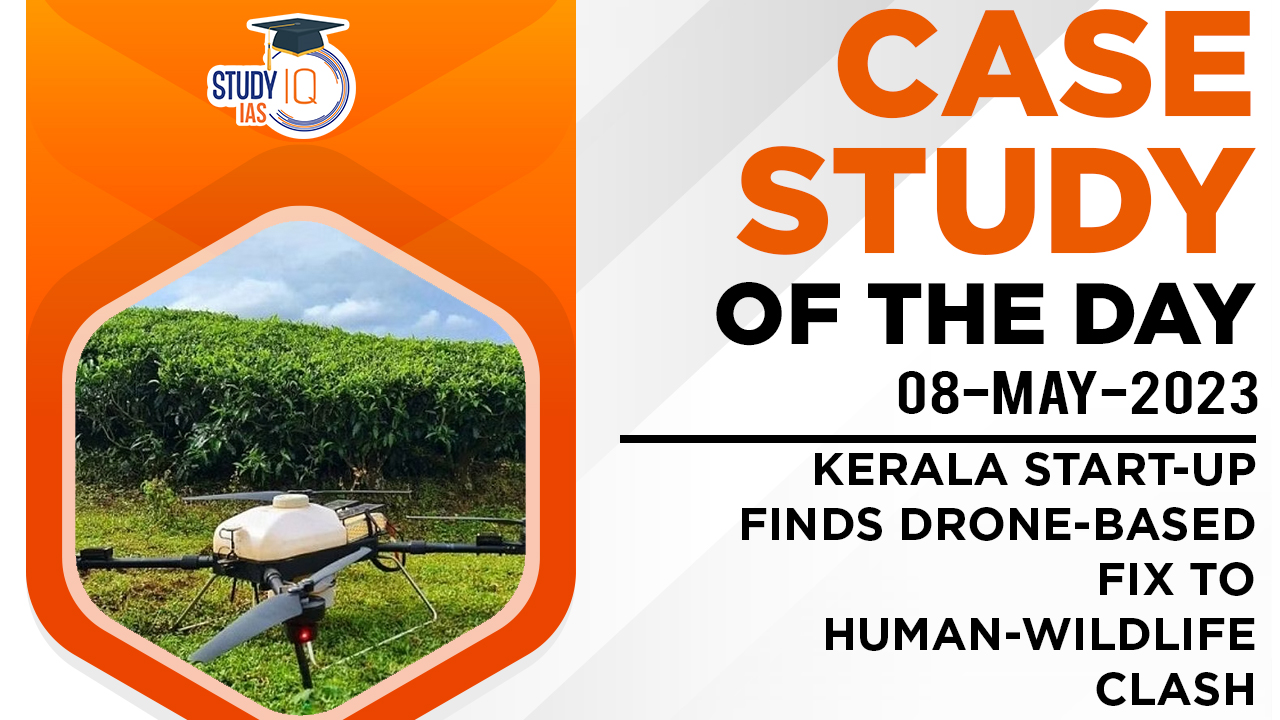Table of Contents
Background
- In Kerala, India, human-wildlife conflict has been a persistent problem for years, especially in areas close to forest reserves.
- Wild elephants often stray into farmland and residential areas, destroying crops and property, and sometimes causing harm to humans.
- The traditional methods of deterrence, such as electric fences and firecrackers, have proven to be ineffective and harmful to the animals. This issue has led to loss of livelihood for farmers and endangerment of the elephant population.
Challenge
- Finding a solution to the human-wildlife conflict that would minimize harm to both humans and animals was a major challenge in Kerala.
- The government had experimented with various methods, but none had proven to be effective.
Solution
- A Kerala-based start-up, EyeRov Technologies, has developed a drone-based solution to the human-wildlife conflict.
- The company uses drones to monitor and deter elephants from straying into human habitats. The drones are equipped with speakers that play the sound of honey bees, a natural deterrent for elephants.
- The drones also have high-definition cameras that allow operators to monitor the animals’ behaviour from a safe distance.
Implementation
- The drones were first tested in the Wayanad district of Kerala, an area that has been particularly affected by the human-wildlife conflict.
- The drones were flown over farmland and residential areas, and the sound of honey bees was played through the speakers. The results were promising, with elephants being deterred from entering the areas.
Impact
- The drone-based solution has had a positive impact on both humans and animals. The farmers are now able to protect their crops, and the elephants are not harmed in the process.
- The drone-based solution has also reduced the need for human intervention, making it a safer solution for all involved.
- The success of this project could serve as a model for other areas facing similar challenges.


 Daily Quiz 16 July 2025
Daily Quiz 16 July 2025
 US Approach to the Trade Deal with India...
US Approach to the Trade Deal with India...





















